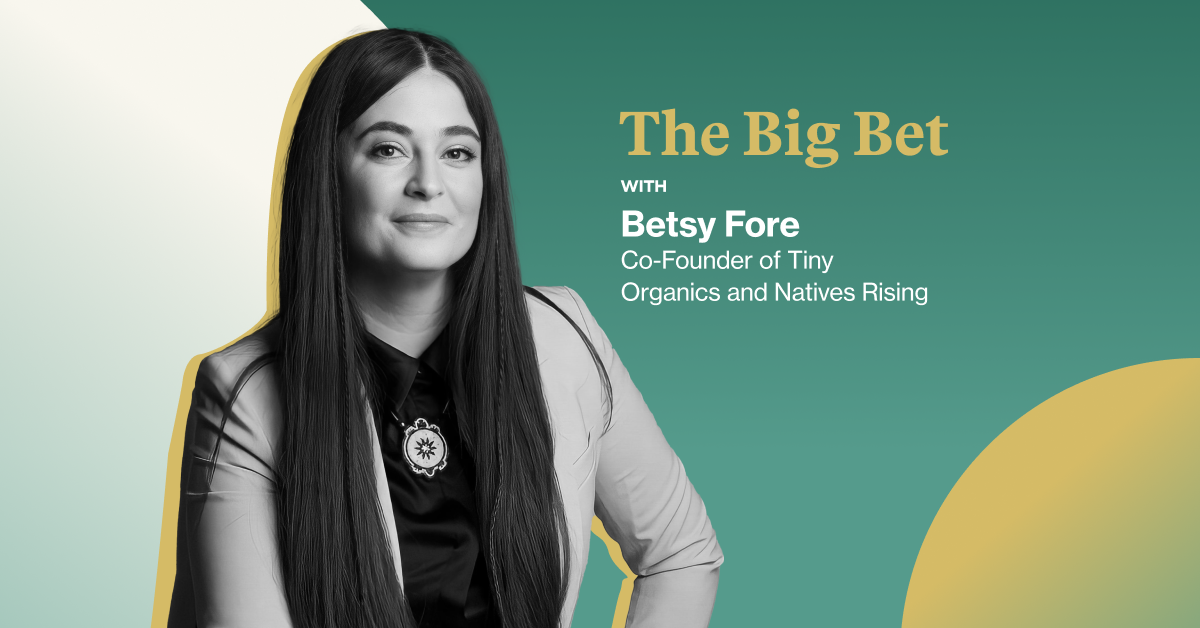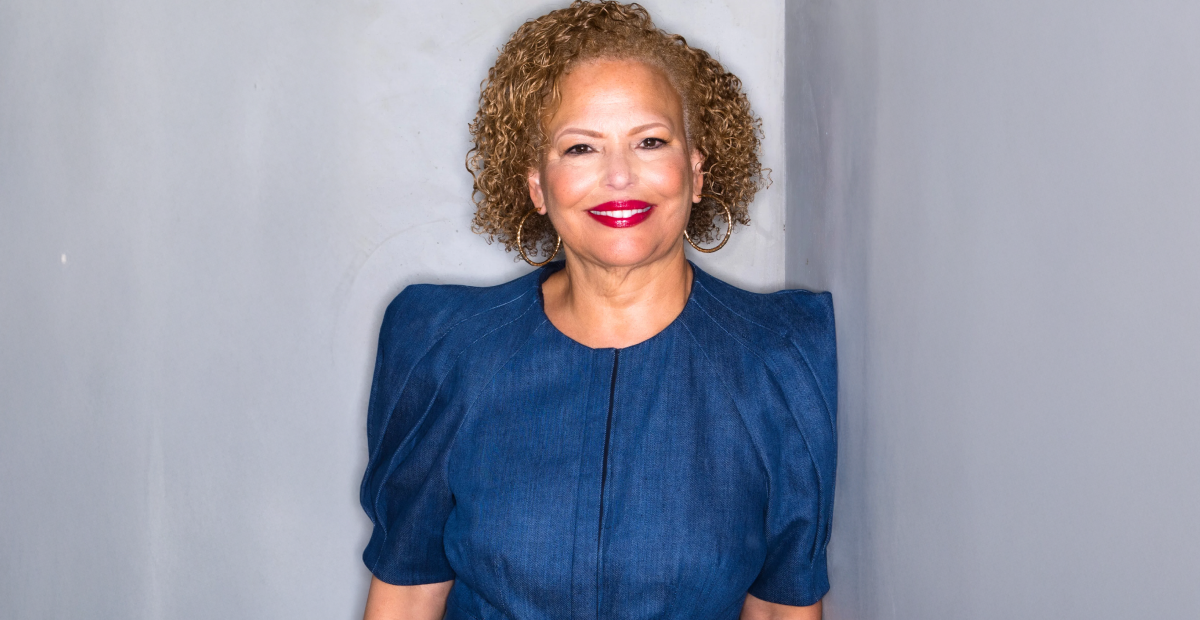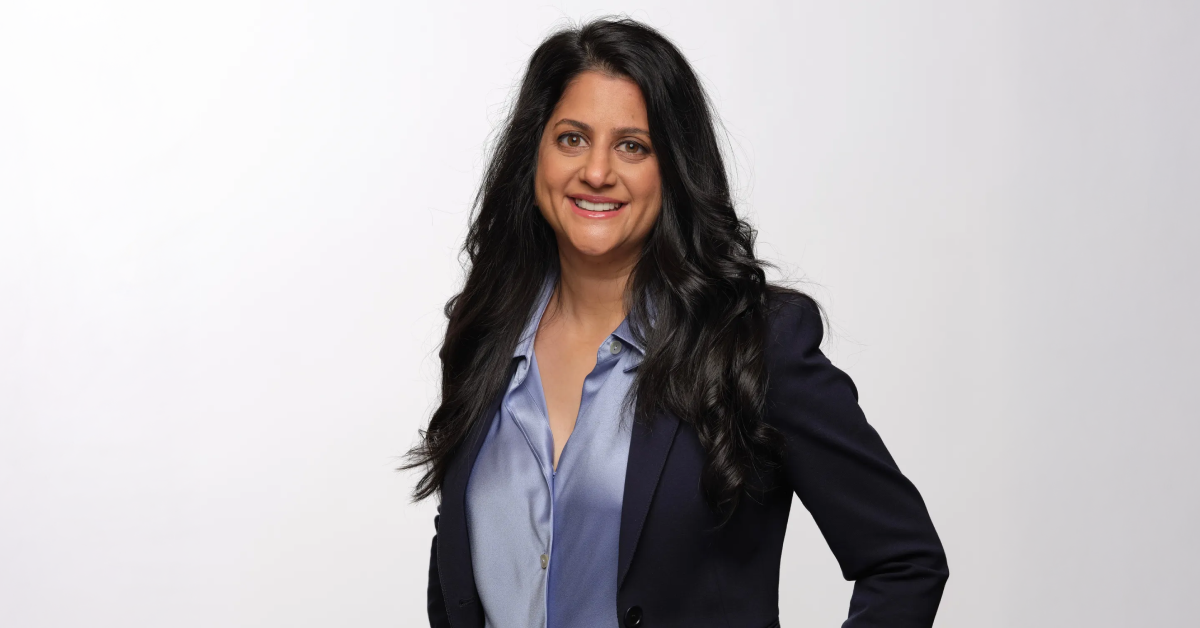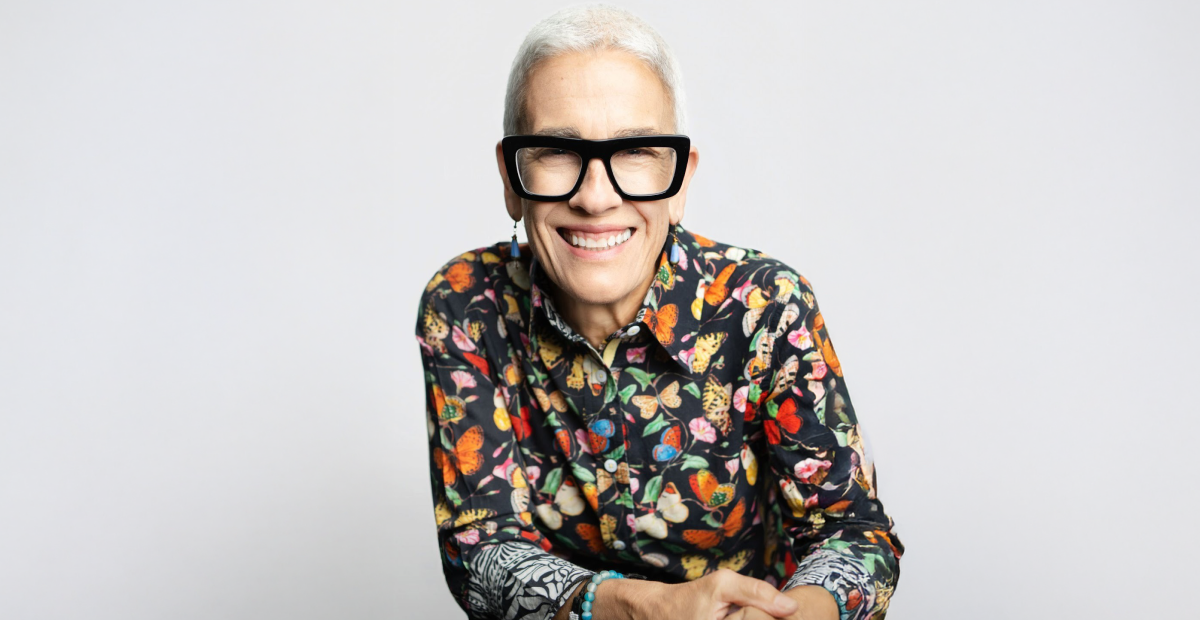The biggest career wins often come with risk. On our series, The Big Bet, Chief speaks with some of the most powerful members in our network about that single moment when they bet on themselves — and won.
In 2015, Betsy Fore was named to Forbes 30 Under 30 list for building her first company, Wondermento, whose hero product allowed dog owners to track their pet’s activity through a smartphone. Since then, she’s been named Entrepreneur's 100 Women of Impact, BBC’s 100 Most Inspiring Women, and she’s joined forces with Michelle Obama to promote healthy eating for young children with her new company, Tiny Organics.
For many entrepreneurs, these nationally recognized accolades would be enough to make them feel accomplished. But for Fore, she makes it clear that the recognition means nothing if she doesn’t reach back and help other Native entrepreneurs rise. “This is my legacy work,” she says. “Now that I’m at the table, I have to give back.”
For this installment of The Big Bet, Fore shares how her background and family on her reservation in North Dakota inspired her current career. And how now, as the first Native American woman to raise a Series A in funding, she is using her influence to help other underrepresented founders gain capital and recognition for their work.
On Where She Came From
“I'm a builder at heart. I grew up going between the middle of Illinois to my family's reservation in North Dakota, Turtle Mountain Chippewa, which is on the border of Canada. I didn't realize that there was a big world beyond these two kind of bubbles because I didn't really travel to a big city until I was in high school when I visited Chicago.
“I tinkered in the garage with my dad building motorcycles a lot and thought, ‘What if I could have a career where I get to build things?’ I was really dreaming big because my mom grew up on a reservation where our family still lives, and my dad came from sharecroppers in the South and lived in mining housing for his whole upbringing. I'm the first person in my family to go to college and I feel like they gave me every opportunity that they never had. I got a degree in industrial design. I thought, ‘Oh my goodness, I could design cars and furniture.’ And actually, what I wound up designing was toys. That's what I did right out of college.”
On Learning How to Fail Fast
“I applied to this toy invention firm called Big Monster Toys out of Chicago. They supplied Mattel, Hasbro, and Spin Master with all their ideas for new toy inventions. I ended up getting hired there and I learned how to fail fast. Essentially, each inventor was operating like their own startup within the invention firm and it taught me to approach each idea with the same enthusiasm because what ends up happening is you come up with 100 ideas that you'd actually build by hand and only a few of those actually make it. For me, I pitched over 100 ideas and only a couple of those made it to market, one was a Polly Pocket play set called Flip and Swim. It taught me a lot about just trying and putting yourself out there.
On Taking a Big Bet Across the Pond
“During this time I heard about a guy who I thought would be the next Richard Branson. I loved what he was building out in London. His company was called Mind Candy, but the product was Moshi Monsters. I flew to London not knowing anyone, but basically my persistence paid off. By the fifth time of me walking in to say, ‘I'd like to meet with Michael [Smith]. I have these ideas for how we can build his company into a physical franchise,’ we finally got to chat and he hired me on the spot. I led all of product there and ended up moving out to London and it was just a total dream.”
On Succeeding to Give Back
“I was doing hackathons on the weekends. And in one hackathon I ended up inventing the first fitbit for dogs. So my first company, Wondermento, was born out of that hackathon. I had invented it for my dog and he actually ended up losing weight because of the device.
“[Wondermento] was like a six or seven year journey. It was my first company and I initially self-funded everything with the help of my success at Mind Candy. The first capital I ever raised was actually a $50,000 grant from the city of St. Louis and that’s what brought me back to the U.S. And this is something that's really typical of the Native community, but also other underrepresented communities. We don't have those sort of connected friends and family around. So it’s like how do you go about finding funding or even knowing what you should be looking for and doing? For me, that $50,000 grant is why I'm here today. It’s also the reason why I founded my nonprofit Natives Rising because now I'm giving $50,000 grants to other Native-owned businesses through our Founders Circle so that they can get their start as well. At Natives Rising we are excited to be partnered with investors like Tiger Global and aligned individuals, firms, and corporations who truly care about representation in tech and entrepreneurship. Their endorsements mean getting more female Native founders funded. Our Natives Rising founders, tech fellows, and community members currently represent over 100 tribes.
“When I first got going with Wondermento, our hero product was WonderWoof, which was a little bowtie that was one of the first pet wearable devices. I launched it in Harrods and in Bloomingdale's when we came to the U.S., as well as in Nordstrom and in every Best Buy in North America, including Canada. I also launched in Petco. We even got on Oprah's Favorite Things list, which was the highlight for me. She was using the bowtie on her dogs.
“I did eventually raise a few million for that company. It was never VC, it was always angel. I’ve since spent a lot of time in my career talking to founders about going the angel route or the VC route because they’re very different.”
On the Calling to Be a Serial Entrepreneur
“As I was going through acquisition talks for my first company and figuring out my exit, I was thinking, ‘What will I do next?’ I had been a founder then for almost a decade and I liked building my own company. And honestly, I feel like I became an entrepreneur again because I didn't know how to do anything else, like I was born for this.
“And so for my next foray, I knew I wanted to start a family. So I thought, ‘How can I make the biggest impact on childhood development?’ And that's when it hit me — through food. [When I was young,] the drive that we took from our little country town in Illinois to where my relatives lived on the reservation was 15 hours one-way and we had every McDonald's clocked along the way to get there. I still like McDonald's, but with the way I grew up eating it, it was like I was on a sugar roller coaster all the time. So I thought, ‘How could I re-engineer my body?’ It was about 17 years ago when I became a vegetarian and I know how being plant-based makes you feel. I had never made that connection with food before and always just thought I was an extremely hyper child. So when I was thinking about my son, who wasn't quite born yet but I knew he was on the way, I thought, ‘The greatest gift I can give him at this age is a love of vegetables.’ And that’s when we kicked off [Tiny Organics in 2017].”
On Creative Marketing
“I looked into different VC firms around New York where I was based at the time and wound up going with Human Ventures to help incubate us for that first year. I learned so many lessons from building my first company that I did it totally different this time. Instead of just building the tech and hoping people will come, I worked with families in Park Slope Brooklyn to actually give the baby food to their children. We sent one email to a Park Slope parent group and we got hundreds of inbounds and had to cap it at 100. Some of those families are still with us to this day and their children grew up on the vegetables at Tiny.
“We’ve seen a ton of success. I’m actually the first Native American woman to raise a Series A. The Series A was $11 million [in 2021] and I've actually raised over $20 million for my company to date. That's unheard of on the reservation and amongst our community. I feel like now that I'm at the table it's my responsibility, honor, and privilege to extend the table for other Native folks.”
On Working With Michelle Obama
“While we were building [Tiny], Michelle Obama caught wind of what we were doing because she was coming up on her decade anniversary of founding Partnership For A Healthier America (PHA). She wanted the theme to be ‘veggies early and often.’ We met her team in January 2020 and we were meant to be on stage together [for the summit] in Chicago in March 2020, but of course it didn't happen and it was all virtual. I do serve on her Shaping Early Palates Board and I chair the Retailer and Industry board for it as well. Essentially, we’re trying to get children to fall in love with vegetables from the first bite so that it could be the food that they come home and crave as opposed to the sugary ones. I’m on a mission with Tiny to really transform and shape the palates of a new generation to prefer savory over sweet foods so that children grow up to be the healthiest versions of themselves. In 2022 I moved into a board role within the company in order to dedicate myself to Natives Rising and to ensure more women and underrepresented founders get funded.”
On Being an Investment Partner
“When I first got into it, it was through XFactor Ventures because they had backed Tiny and then they approached me with their third fund that they were raising and said, ‘Would you want to be a partner?’ The way XFactor works is its female founders who have raised a Series A and beyond, and they back other female founders. So there's 22 of us partners as part of the fund. It was a total honor to even be asked because I get to be on the other side of the table, which in a way I feel is how you really change the dynamic in terms of wealth generation. So essentially its female founders funding female founders. We don't even have to bring it back to an investment committee. It’s backed by Flybridge. So if you feel strongly about an idea or a company, you can just push it through for the $125,000 check that we write at the pre-seed and seed stage.
“When I moved out to Chicago years ago, a good friend of mine that I knew from New York had also moved out and started a founder fund called LongJump VC. That fund's premise is to fund underrepresented founders that are based in Chicago with their first check. So it’s really a pre-seed fund and it’s a $100,000 check. So we've done about 32 investments through LongJump, and we're almost at 100 with XFactor.”
On Her Leadership Journey as a Native American Woman
“In Native culture we have a collective mentality that we all win together and that’s something that hasn’t always been in Western culture. I think this ‘all ships rise’ mentality is starting to come of age now in business, but it definitely hasn't been that way here in America. And so I think that sort of feeling of oneness adds to almost like a spiritual dimension as to what it means to be grounded. As Native people we always say, ‘We're standing on the shoulders of our ancestors.’ It’s like we are literally the culmination of every Native American before us who paved the way. And so I feel that [my culture] has given me so much strength and wings to be able to feel like I could go out there and do anything because all of these folks before me.”
Editor’s Note: For those with questions about our company name, Chief, we first would like to recognize the significance this term holds in Native American and Indigenous communities. Our company name is based on the origin of the word “chief” which refers to “head of a group” in both French and Latin etymology. As an organization that is focused on changing the face of leadership in corporate America, we are specifically referencing “chief” as it is used in corporate titles to denote the highest rank or level of authority.



